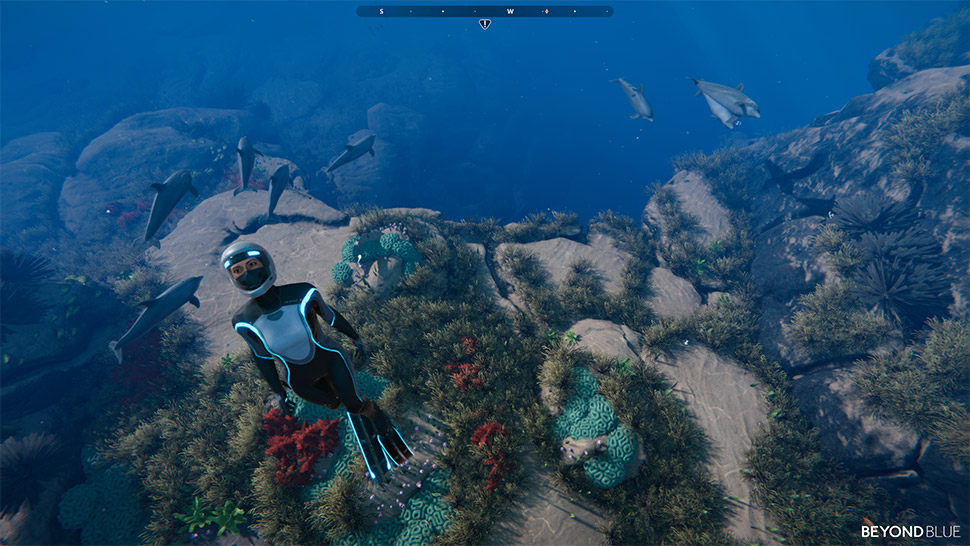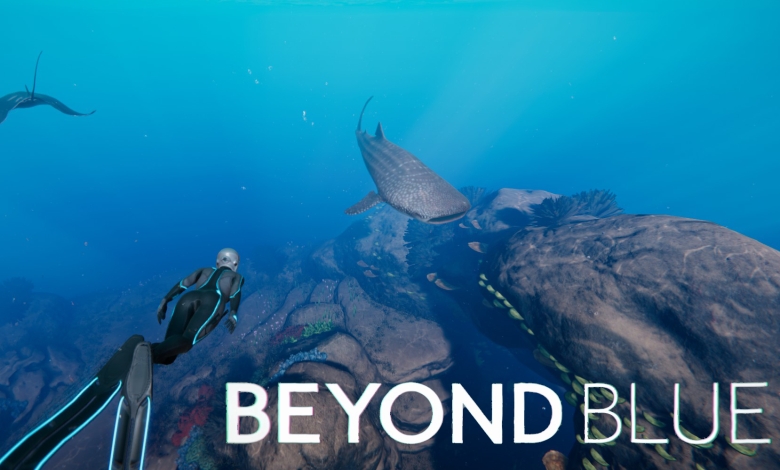

Here’s how Angst describes the world and premise of Beyond Blue: “The threat of population collapse in species, especially large, social animals like whales and dolphins, is always looming.” “The impacts resulting from a warming ocean, the flow of waste / plastic, and growing noise pollution have reached a crisis level in some regions,” he adds. He explains that the scientists who consulted on the project helped to imagine a future that we can aspire to, while simultaneously depicting the harsh realities our ocean is experiencing as a result of the contemporary climate crisis. ”We thought it would be interesting to set the game in the near future, not so much to project, but to invite players to be part of imagining what our ocean’s future might realistically be,” Angst tells me. ”We thought it would be interesting to set the game in the near future.” “We believe the real world is as mysterious, complex, and beautiful as the most richly imagined worlds of fantasy and science fiction,” he says. He explains that BBC Earth alone creates over 60 hours of natural history content a year, with their continued and constant aim being “to raise big issues and provoke discussions about our planet.” Angst shares these sentiments, explaining why it’s important to make games that are innately tied to reality and contemporary issues. “Everyone is becoming more conscious of the world around us, so it would be great to provide our content and expertise to game developers who are interested in bringing these stories to life in new and exciting ways,” Jorge tells me. On top of this, the BBC’s Blue Planet II was a huge hit that helped bring important conversations to a larger audience.

In the words of Michael Angst, E-Line Media co-founder and CEO, contributors spend these vignettes “discussing the cultural background behind creative decisions and providing an opportunity for players to get to know the perspective of the elders, storytellers, and artists that helped create the game.”

What struck the BBC about Never Alone were its “Cultural Insights,” which appear as short, unlockable documentary videos centered on thoughts from members of the real-life Alaska Native community.
#NEW FORM BEYOND BLUE SERIES#
At the time, Blue Planet II, a BBC documentary series on the wonders of marine life, was still in development and served as the basis for many conversations to come. “We realized their goal of developing games that are a force for good and help players understand the world aligned with our principles and we began chatting,” Jorge explains. Kevin Jorge, senior producer for games and interactive at BBC Studios, explains that Never Alone - a game centered on native Alaskans - had brought the studio to their attention. One such case originated in 2016 after developers at E-Line Media were approached by the BBC to commence work on Beyond Blue. This could mean anything from a game exploring the oceans made in concert with the BBC, to an interactive look at the importance of bees. Their purpose is to reflect injustice and encourage change as we seek to undo the damage done by the contemporary climate crisis. In some cases this is largely innocuous and more a product of pure creativity than a riposte against real-world issues.īut more recently, smaller creators have been designing worlds as mirrors to our own. From the loathsome lusus naturae of behemoth horror series to the sprawling cosmopolis of complex management simulators, video games often feature wrenched contortions of the natural world as core tenets in environmental design. Nature isn’t exactly new territory for games. As the world grapples with the enduring impact of climate change, indie creators are finding ways to use games as a form of interactive education.


 0 kommentar(er)
0 kommentar(er)
